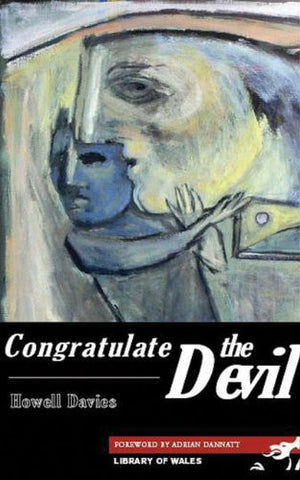"Congratulate the Devil is a delightful comic novel by forgotten Welsh fantasy writer Howell Davies. Rescued from obscurity by the Library of Wales this amusing tale of mind control proves to be something of a lost gem. ... the most surprising... addition to the Library of Wales series so far."- babylonwales.com
Synopsis:
Starling knows a chemist called Roper, who knows a painter called Jourbert, who knows a man in Mexico who works for the government. Mescal has always had its routes into the world. There has been a new shipment, but not quite what anyone expected. This is a new drug. It opens the doors of perception for a man like Roper hiding away in his north London laboratory. He can make people work for him, turn his friends into fools or murderers, if only he could control his own mind.... Anita is such a beautiful woman but she could never love a man like Roper...
Power, pleasure, always corrupt...
About the author:
Howell Davies was born in 1896 on a farm at Felingwm near Carmarthen. He joined the Royal Welsh Fusiliers on his 18th birthday in 1914 and served throughout the First World War, being wounded twice and commissioned captain. Educated at the Sorbonne, Oxford and Aberystwyth University, he became a freelance journalist and editor for a wide variety of publications and organizations. He was editor of The South American Handbook, from 1923 until 1972. His best-known works are the three novels published by Gollancz just before the outbreak of the Second World War, most notably Minimum Man (1938), which was widely serialized. This was followed in 1939 by Three Men Make a World and Congratulate the Devil. He died in 1985.
Short extract:
‘No, no, I’m Welsh actually’ is always my riposte when accused of being English, partly to avert the cliché of being just one more Englishman living in New York, but mostly as homage to the very Welshness of my grandfather Howell Davies. This notable Welshness was not a question of mere nationality, though he was born on the hills of Felingwm, nor of language, though he indeed spoke and wrote Welsh with pride and accomplishment, but rather of character and attitude, his unique approach the whole thing of it.
‘For that was the worst of being Welsh, once you got into the spirit of a thing, and though you began by acting, in a moment, quick as anything, you were serious and inside the skin of the song, mournful as midnight and feeling a black sort of ecstasy...’

